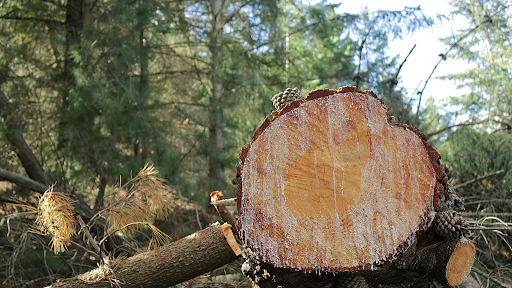




Source: HINDU
Disclaimer: Copyright infringement not intended.
Coined by environmentalist Sunderlal Bahuguna the phrase Ecology is the permanent economy emphasizes the inextricable link between ecological health and human well-being.
As environmental degradation, biodiversity loss and climate change intensify this principle calls for a paradigm shift in policy, economy and individual behavior.
Ecology as the Foundation of Economy
Human survival, economic stability and climate resilience depend on ecological balance.
Natural resources are not infinite. Sustainable economic development is impossible without conserving nature.
Climate change and biodiversity loss are reminders of the cost of ecological neglect.
Need for a Balanced Approach
Sustainability is about balancing development and environmental protection.
Excessive reliance on scientific models ignores the emotional and ethical dimensions of human-nature relationships.
Modern civilisation has increasingly disconnected itself from nature causing ecological alienation.
Human Evolution and Consumption Patterns
Early humans used nature sparingly for survival; modern societies exploit nature competitively to secure future gains.
This anticipatory exploitation is unique to humans and has led to overextraction, pollution and ecosystem disruption.
The Paradox of Modern Conservation
We seek nature-based solutions like afforestation, wetland restoration and carbon sequestration.
Yet we continue to overconsume and degrade ecosystems — creating a self-defeating loop.
This paradox leads to further ecological imbalances hampering climate adaptation.
Reframing the Climate Crisis
The climate crisis is not just scientific — it’s a moral, existential and ecological reckoning.
Conservation must shift from reactive measures to proactive stewardship.
Ecology must be seen not as a constraint on development but as the basis of long-term security.
The Emotional and Moral Connection to Nature
Humans possess the capacity for emotional bonding with nature — a trait to be leveraged.
Conservation efforts should strengthen this bond, not just rely on regulations or policies.
A sustainable lifestyle arises from the inner realization of interdependence with nature.
|
Concept |
Explanation |
|
Ecology as Economy |
Ecological resources are the foundation of all economic activity. |
|
Nature-Based Solutions |
Conservation strategies that use natural processes (e.g., restoring forests, wetlands). |
|
Emotional Ecology |
The idea that emotional connection with nature can drive sustainable behavior. |
|
Anthropogenic Pressure |
Human activities that accelerate climate change and biodiversity loss. |
|
Intergenerational Responsibility |
Ethical duty to preserve nature for future generations. |
Integrate ecological accounting into GDP and development indicators (like Green GDP).
Foster ecological literacy and emotional awareness about nature.
Encourage decentralized, community-led conservation.
Promote minimalism, ethical consumption and reduced carbon footprints.
Reconnect with traditional ecological knowledge and indigenous wisdom.
We won't have a society if we destroy the environment. – Margaret Mead
What we do to the forests of the world is but a mirror reflection of what we do to ourselves and to one another. – Mahatma Gandhi
Sources:
|
PRACTICE QUESTION Q. Sustainability requires recognising that ecology is the foundation of economic and human progress. Discuss in light of current environmental challenges. 250 Words. |







© 2026 iasgyan. All right reserved